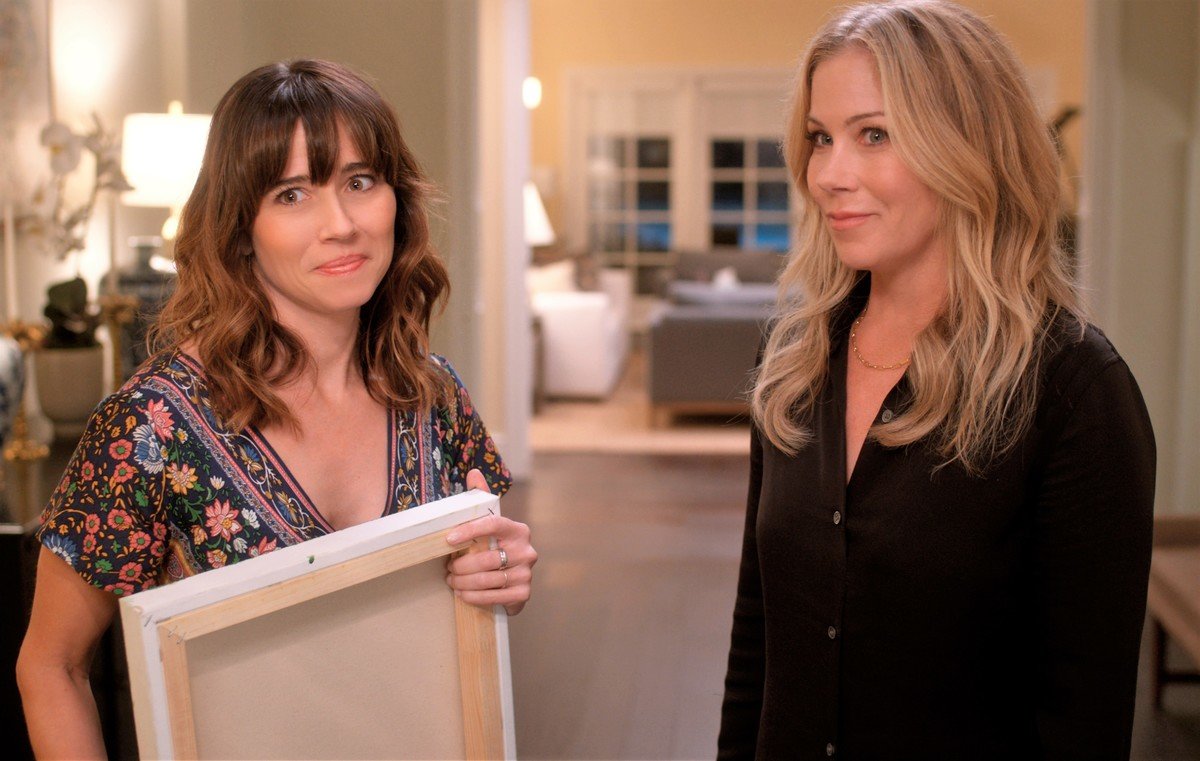

Everybody mourns in his or her own way, and, the psychologists tell us, according to several discernable stages of grief. Typically not on the list are things like sarcasm, jamming to thrash metal, and moving into shared accommodation with the stranger who caused your loved one’s untimely death.
These, it may be safely assumed, are unusual responses to loss. And yet, in Dead to Me, they come across as strangely plausible, even endearing.
Now in its second season, the Netflix Original series continues the upbeat dark comedy antics of the first.
Avoiding spoilers for those who have yet to catch up, the story as a whole follows the exploits of a middle-aged suburban mom in her attempt to uncover the culprit in her late husband’s hit-and-run. Alternating between dropping her kids at school, exhibiting upscale Southern California real estate, and taking a golf club to a reckless driver’s Corvette, we find this “white wine vigilante” speeding fast down the road toward her own kind of existential disaster.
The premise may not sound very funny, but the execution often is.
Jen, the aggrieved widow, is approached by a stranger at her oceanside survivors of loss support group. After only a few moments of conversation, Judy asks if she can give Jen a hug, which she neither accepts nor politely declines, but refuses with the emotional equivalent of “ew, gross.”
Which sets the series’ tone.
Simultaneously both ruthlessly distanced and heartfelt, the humour will probably not sit well with everyone. But for those with the stomach for it (as well as the free-wheeling colorful language, drug use, and sexuality), the series serves up a refreshing, even tonic validation of conflicting emotions familiar to many who have lived in the wake of sudden, life-altering loss.
The plot twists, which come thick and fast, even as they become increasingly fantastic, turn out to not really matter. The heartbeat of the show is the electric current passed back and forth between the prickly, emotionally unapproachable Jen and the utterly empathetic, more than occasionally codependent Judy.
The tough, keep-your-distance intellect gets thrown together with a self-effacing, all-embracing heart, and the resulting friendship is the portrait of an outwardly contradictory yet somehow deeply plausible sensibility.
It perhaps bears repeating that the series does not approach the subject of grief wearing velvet gloves. You can get a taste of the often savage humour from the trailer.
Yet perhaps even on such a tender topic as loss, as in other areas of pain, it might be considered a sign of real recovery once one can finally laugh about it.
When many of us grieve, we do not feel only one thing. We tend to walk on tiptoes around the aggrieved, and (at least in the early stages) for good reason. No one in her right mind seeks to inflame already livid injury.
At the same time, “all things in their season,” as the preacher says.
As hard as it might be to imagine when the wound is still fresh, far enough down the road from a kick in the gut a few jabs in the ribs might actually feel good.
(Original published in The B.C. Catholic)
